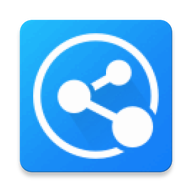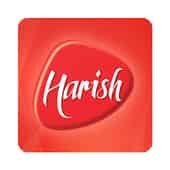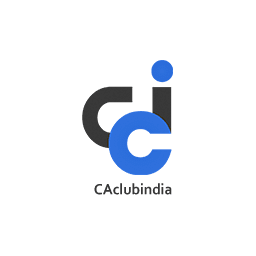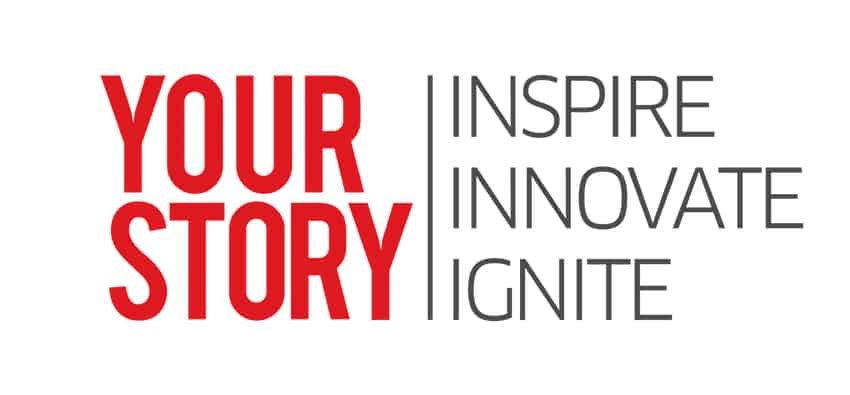Mental Health Apps with Casino Progress Gamification
Introduction
Apps that focus on mental health have become increasingly popular as means to help with their emotional well-being, manage stress and develop resilience. But keeping users engaged is a constant struggle. Motivational elements from gloryscasino.com (e.g., variable ratio reinforcement, progress wheels, and token jackpot) may help increase adherence to therapeutic exercise, while not promoting harmful behavior. This technical brief explores how to incorporate a casino-style gamification to mental health apps, describing design principles, reward mechanisms, system architecture, ethical considerations, and how to measure user benefit over time.
The Pull of Game-Inspired Progress in Mental Health
In behavioral psychology, the most addictive rewards are irregular, not constant offers. Casinos take advantage of this by creating near-miss results and surprise jackpots. Applied to mental health, such mechanics can bolster good habits — think daily lists of what you’re grateful for, breathing exercises or cognitive reframing — by providing random, significant feedback. By integrating progress milestones into a gamified tapestry, apps establish a potent loop: fulfilling these therapeutic tasks becomes not a chore, but a potential mechanism for surprise badges, token spins, or unlockable content that recognizes one’s progress.
Basics of Casino-Style Reward Mechanics
Casino gamification is based on a few underlying components, which are repurposed here in well-being contexts:
- Variable-Ratio Reinforcement: You never know when the reward is coming, so you keep completing tasks without burning out.
- Near-Miss Feedback: Close miss outcomes(e.g., You were 1 letter away from a bonus round!”) motivate users to re-engage.
- Progress Wheels and Slot Spins: Animated interventions where you Celebrate milestones, progress is presented with small surprises—motivational quotes, soundscapes or bonus content.
- Token Economies — Tokens that are earned can be stacked towards opportunities for more personalized coaching, such as meditations or coaching sessions.
These mechanics, if well balanced, establish a feeling of intrinsic motivation and resist against obsessive use.
Task-Flow Design for Therapy
Successful integration starts with matching therapeutic paths with gamified cues:
- Task Definition: Recognize core exercises (mindfulness of breathing, mood logs, CBT exercises).
- Milestone Mapping: Identify when you feel become over exercised and try to categorize these occurrences into minor (daily completion), moderate (weekly streaks) and major (monthly consistency) successes.
- Pokemon of reward: Time slot spins or progress wheel outcomes to coincide with small and big wins while also saving surprise for other special occasions.
- User Notifications: Timing reminders to coincide with task windows — morning mood check, afternoon breathing break — encourage continual engagement without over-fatigue.
By situating rewards within the therapeutic flow, apps eschew gimmickry and employ gamification to enhance rather than distract from mental health goals.
Token and Tier Structures
Solid token economy gives clear user incentives and progress.
Implementation of Progress Wheel and Slot Spin
Interactive animated rewards increase user enjoyment.
- Progress Wheel: A round dial that fills in segments as progress is made. When filled, the user spins for random prizes.
- Slot Spin: A 3-reel mini-game with healthy symbols (lotus flower, heart, sun). Matching symbols produce bonus tokens, soundscapes or visuals to meditate on.
- Near Miss™ Rendering : when two of the symbols match and the third one is close, a special animation occurs, followed by an immediate consolation reward : an inspiring tip, or a micro-break suggestion.
Under the hood, it's all lightweight HTML5 Canvas or native UI components, guaranteeing natively-smooth performance on your mobile device.
System Design and Data Flow
There is a scalable backend system to manage the tracking of tasks, the rewarding process:
- Data Ingestion: Mobile app logs task completions, timestamps and user information using secured REST APIs.
- Reward Engine: Microservice which executes token-earning rules, performs a check for a milestone triggers and triggers the animation of the rewards.
- Token Ledger Service: Stores which balances have already been redeemed as well as the current balance of the tokens using NoSQL with transaction logic or other durable record store.
- Notification Dispatcher: Schedules push notifications for task reminder and reward availability.
- Analytics Pipeline: Rolls up (using dashboards to iteratively optimize) engagement metrics: such as DAUs, avg tokens earned, spin’s redemption rates.
Microservices connect through message queues (for example, Kafka) for separation of real-time processing and batch analytics.
Ethics statement and protections
A note of caution: The use of gamification in mental health requires robust ethical boundaries
- Non-monetary rewards: Make tokens redeemable only for therapeutic content or low-stakes rewards, not cash.
- Transparency: Make a clear statement of the odds of obtaining randomized rewards as well as probability distributions for token spins.
- Compulsion Cap: Cap daily spins and token-accrual rates to mitigate compulsive loops; add ‘cool-off’ experiences.
- User Autonomy: Let users who may not like gaming elements, opt-out and get back to a text-based task-checklist view.
- Data Privacy: HIPAA/GDPR-compliant, with anonymized analytics and end-to-end encryption to protect sensitive mental health data.
Considering the health of the user, it is important to design the gamification so as not to promote undesired behaviors.
Efficacy Metrics and Iteration
The multi-dimensional evaluation is attached to the continuous improvement:
- Engagement Metrics: Monitor task completion rates, spins-to-utilization rates, and lengths of streaks versus non gamified cohorts.
- Clinical Outcomes: Administer validated measures of symptoms (GAD-7, PHQ-9, etc.) at baseline and post-treatment.
- Retention Analysis: Analysis of doom to repel user and causes of churn and how it correlates with the frequency and moment to reward and task difficulty.
- A/B Testing: Try different reward schedules, token targets, and animation styles to maximize adherence and therapeutic effectiveness.
Theoretical motivation informs flexible tuning of gamification interventions in a way that balances engagement against real mental health benefits.
Case Study
Among 1,200 people who used the app, “CalmSpin,” in a six-month pilot:
- Adherence to Task: the percentage of task completion increased from 40 to 78% over the first month that weekly task slots were rewarded with spins.
- Diminished Symptoms: Participants with mild anxiety who used Cove for 8 weeks had average GAD-7 scores that fell 30%.
- Retention Lift: 30-day retention rose to 65% as compared to only 42% for a control cohort without casino gamification.
- Feedback from User: IIC of the users use surprise rewards to practice everyday and 10% drop from it claiming it’s distraction.
These results highlight the promise of casino-style progress mechanics when situated within the ethical framework of mental health promotion.
Implication for the Future and Innovation
The global wellness institute reports that health and wellness tourism is merging with casino gaming through wellness innovations like mental health apps featuring casino progress gamification, creating emerging trends in the global casino hotel market. Major players like Las Vegas Sands, MGM Resorts International, and Caesars Entertainment Corporation are expanding their offerings to include these hybrid experiences, recognizing how wellness has become integral to player experience in popular tourist destinations like Las Vegas and Marina Bay Sands.
These apps transform therapy into engaging forms of entertainment by incorporating games such as slots mechanics, helping hotels and resorts attract and retain a broader audience seeking both health and well-being and gaming and entertainment. As changing consumer preferences drive demand, casino hotels to attract wellness-focused guests are investing in wellness suites and social wellness features, proving that traditional casino environments can successfully integrate wellness facilities. With the market size was valued at record highs, this competitive market landscape demonstrates how blending spa and wellness with casino experiences delivers economic benefits while meeting the primary market's desire for accommodations and entertainment that support mental health.
Future advancements are expected to result in even more engaging gamified experiences:
- Augmented Reality Progress Markers: Place virtual coins or prize stickers in the physical environment using AR to reward task completions in the real world.
Blockchain Tokenization: Create immutable and tradable "Wellness NFTs" as badges of achievement that enable community-driven recognition.
- AI-Powered Rewards: Drive engagement and leverage AI to optimize reward frequency and types based on personal engagement history and clinical profile.
- Social Jackpot Events: We all have struggles—group challenges that unlock communal rewards like a live guided meditation or virtual retreat and foster peer support networks.
These advances are capable of enhancing user engagement and maintaining therapeutic fidelity.
Conclusion
In 2024, the wellness market is witnessing an innovative enhancement as mental health apps incorporate casino progress gamification, blending relaxation techniques with immersive gaming experience through games like blackjack and roulette. Targeting the highly competitive global market, wellness spas and luxury casino resorts in destinations like Macau and properties by MGM are partnering with app developers to diversify their wellness programs, offering high-end amenities that cater to VIP clients and discretionary wellness seekers.
Market research shows this fusion appeals to a new market of tech-savvy users who want their health and wellness journey to feel rewarding, turning meditation and therapy into a lounge-style experience with progress tracked like casino rewards. Stakeholders in the hotel industry recognize this trend as increasingly important for profitability, as hotels offer these apps to guests seeking both hospitality and spa-like mental health support, proving that even in a competitive market, innovation can bridge tourism and self-care through engaging casino games.






















